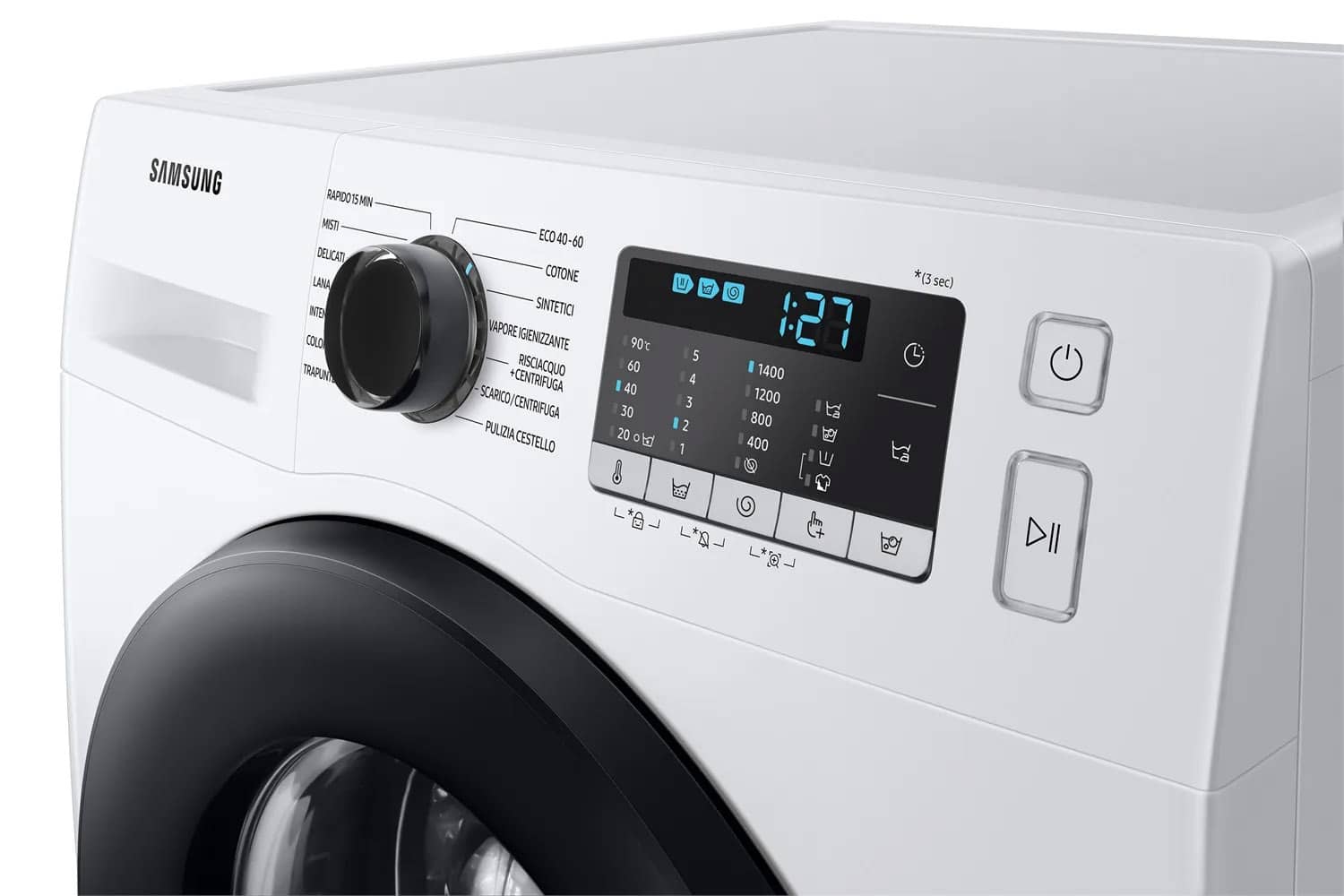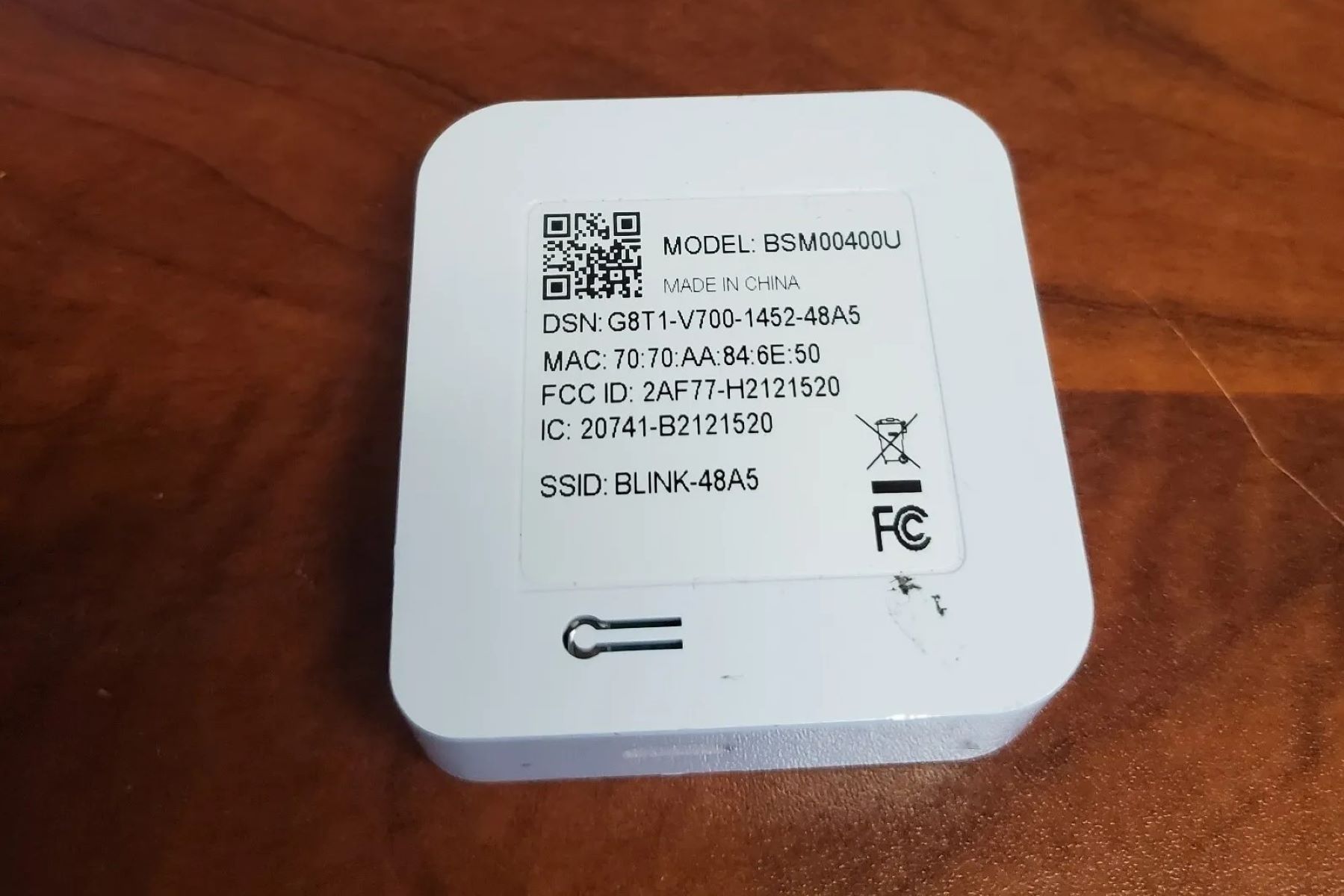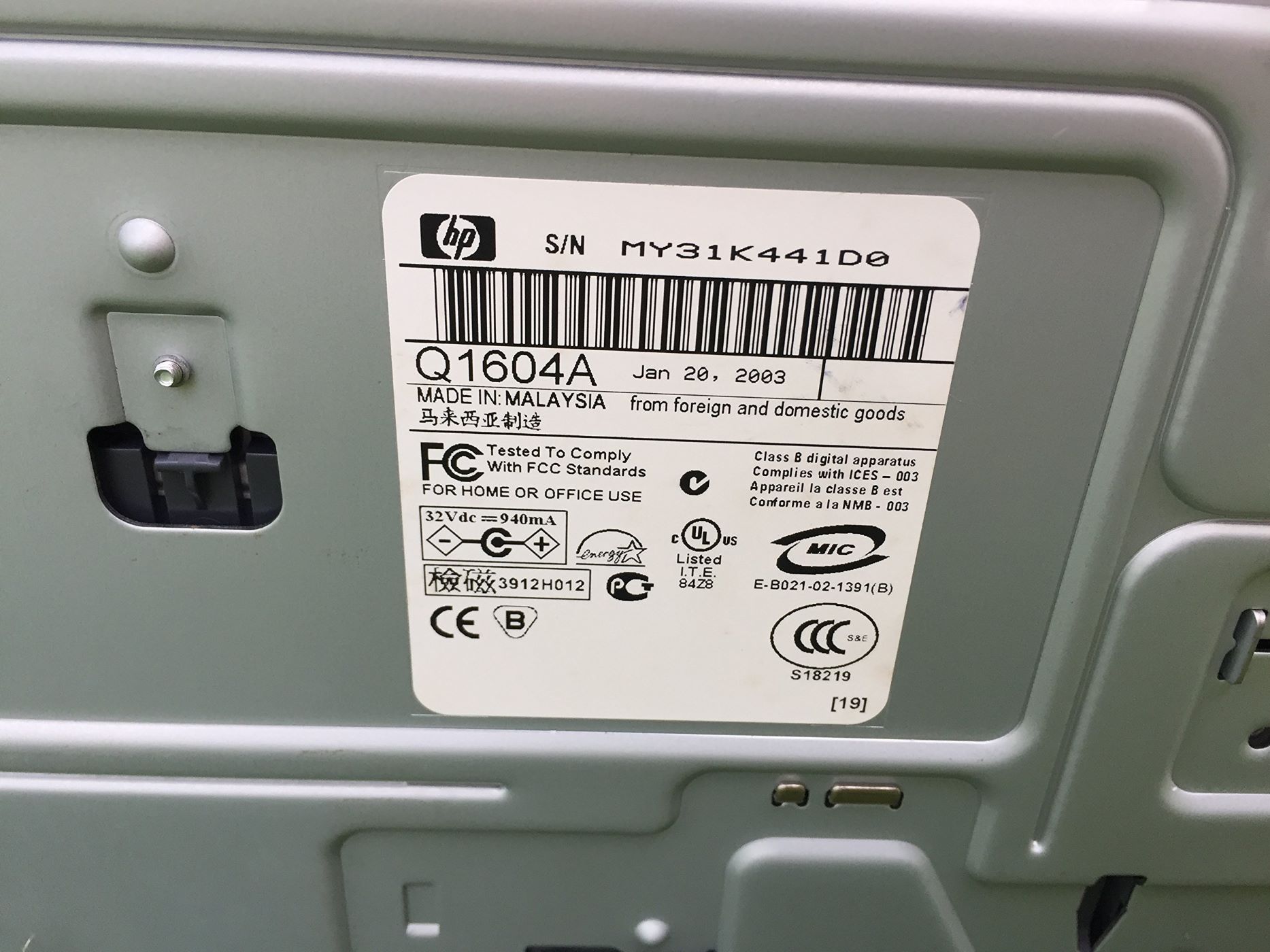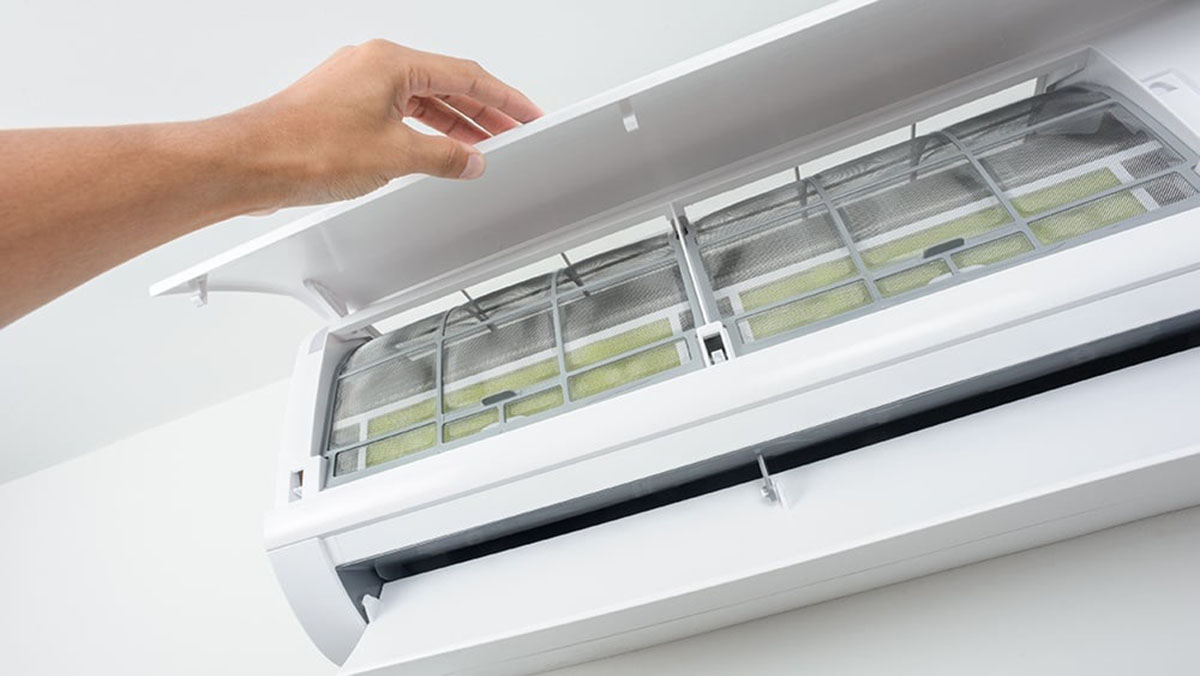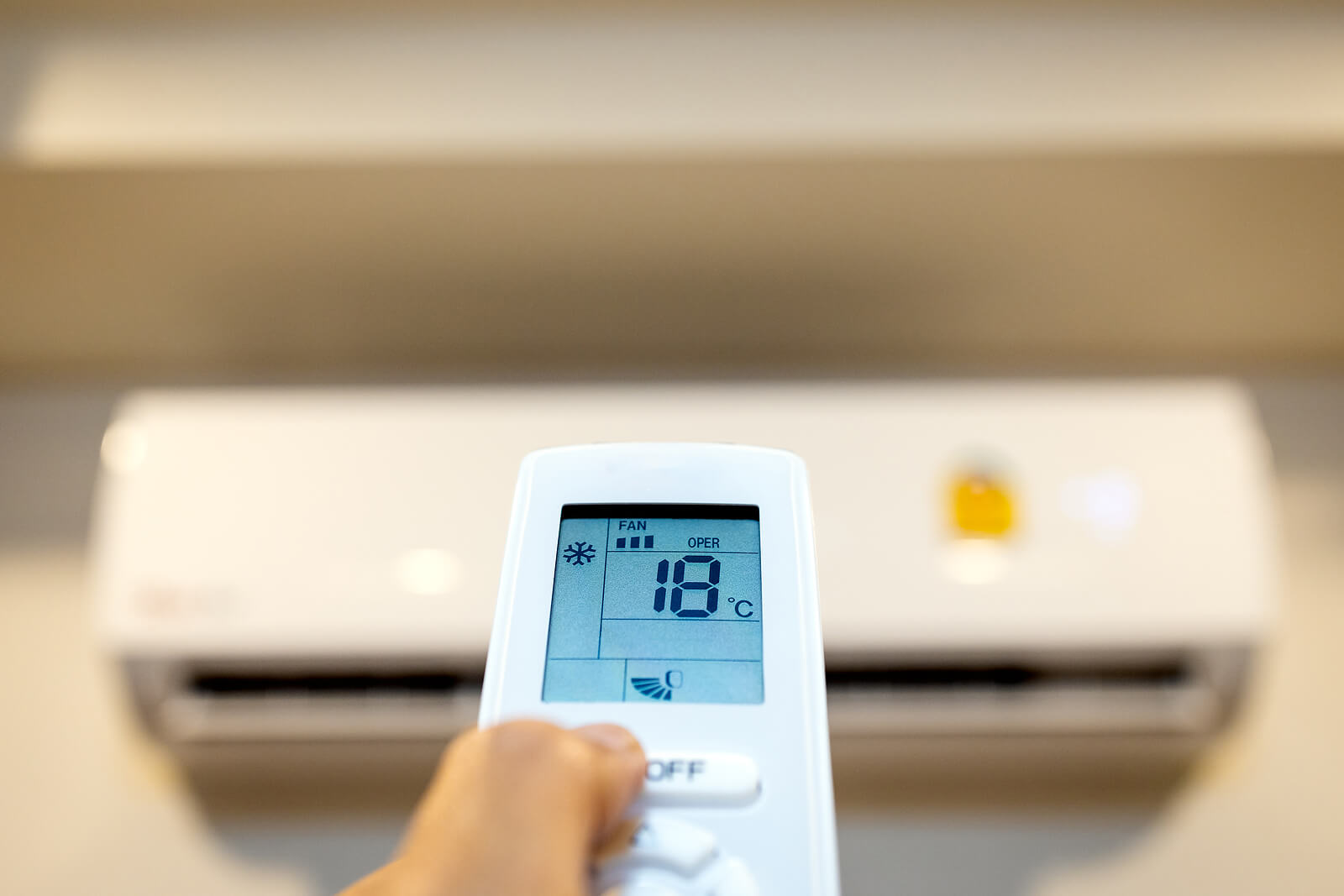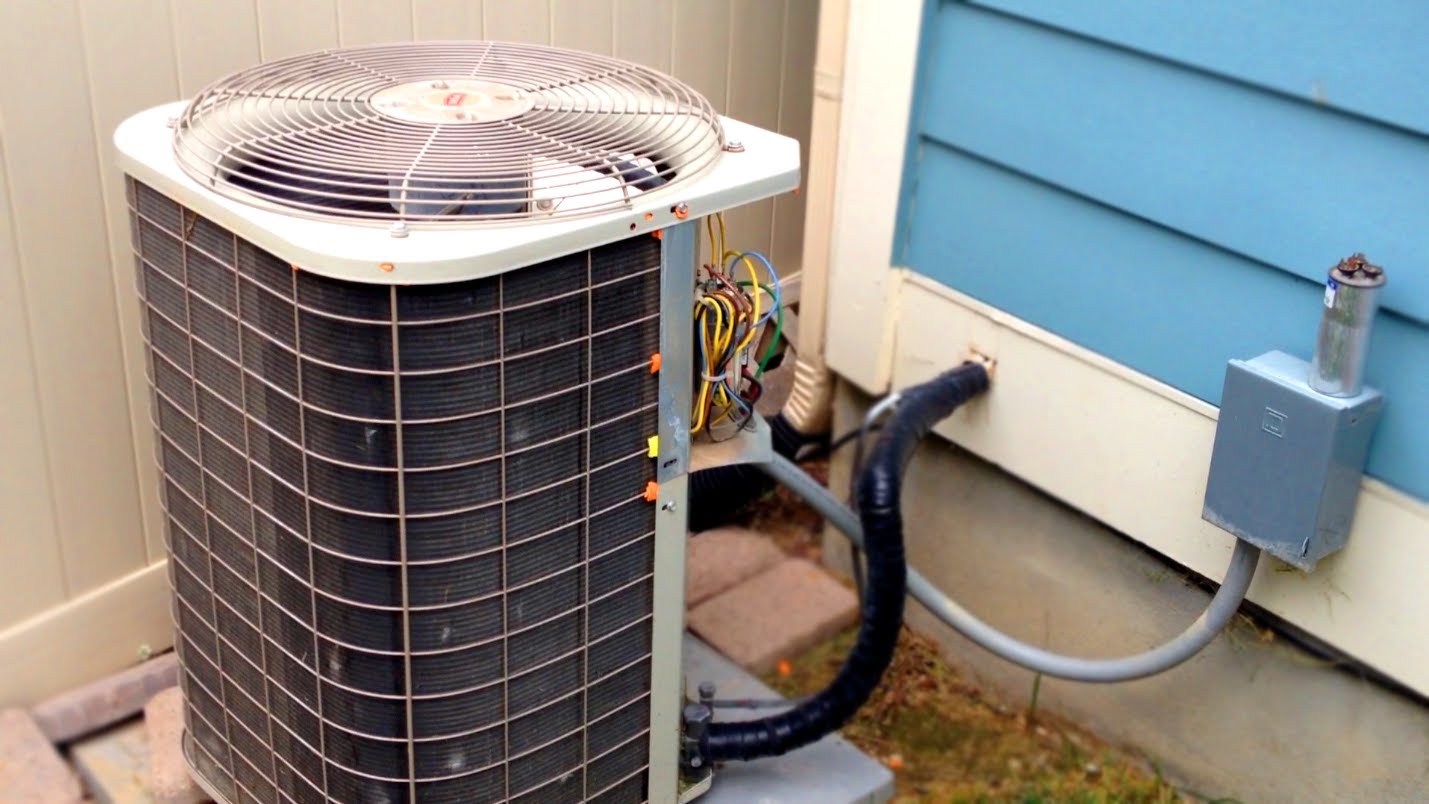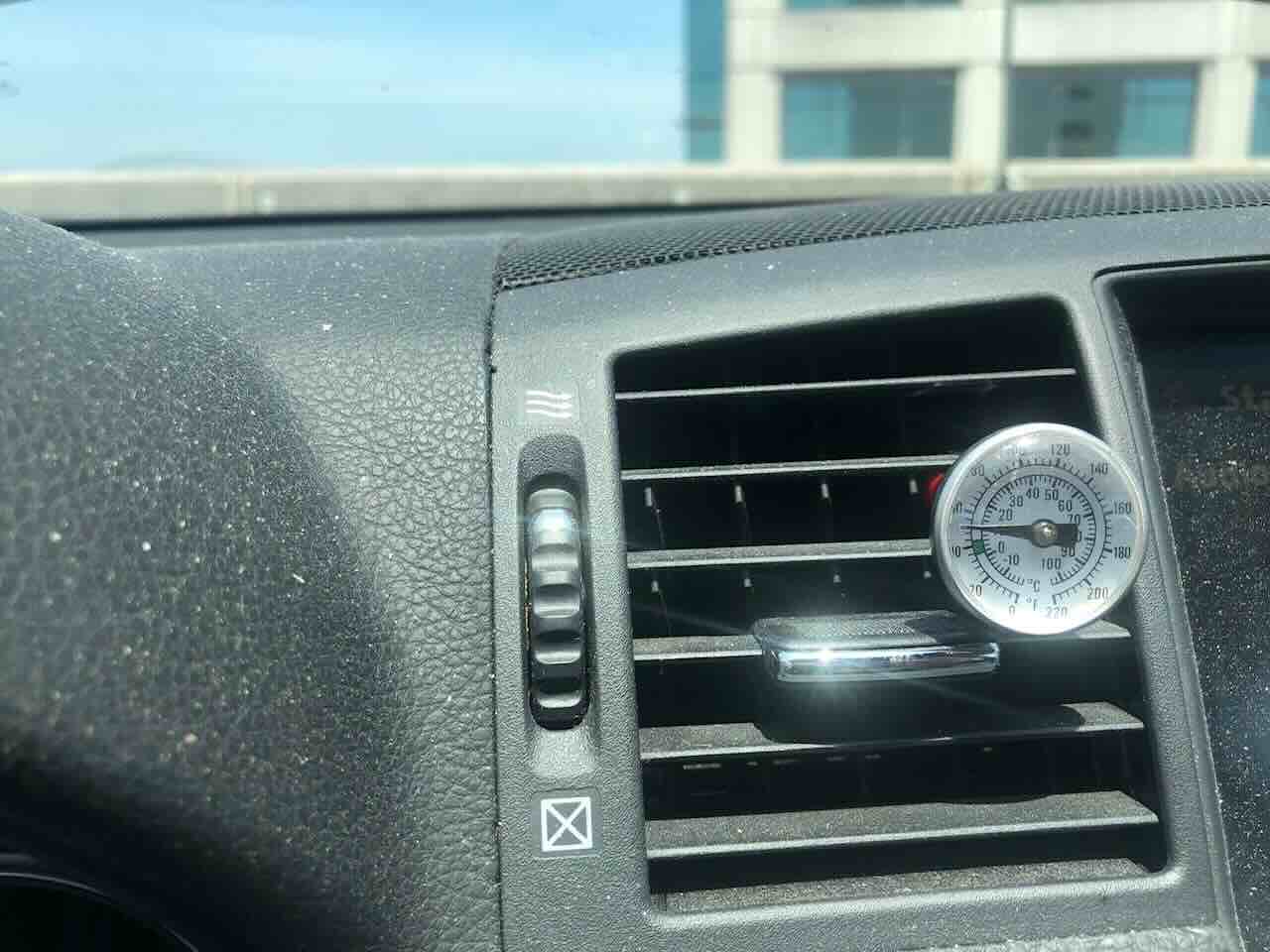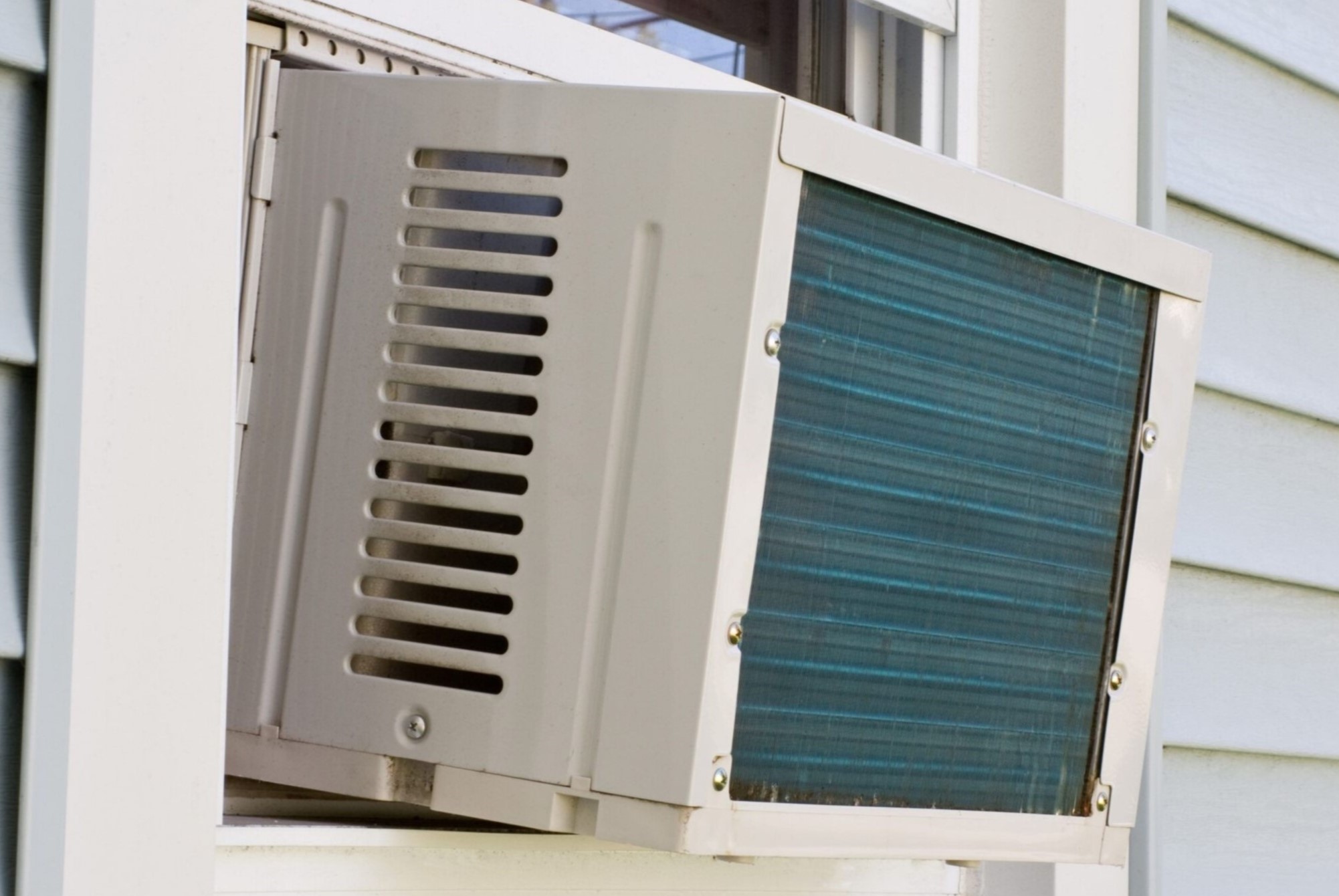Home>Home Maintenance>How Old Is My Air Conditioner By Serial Number
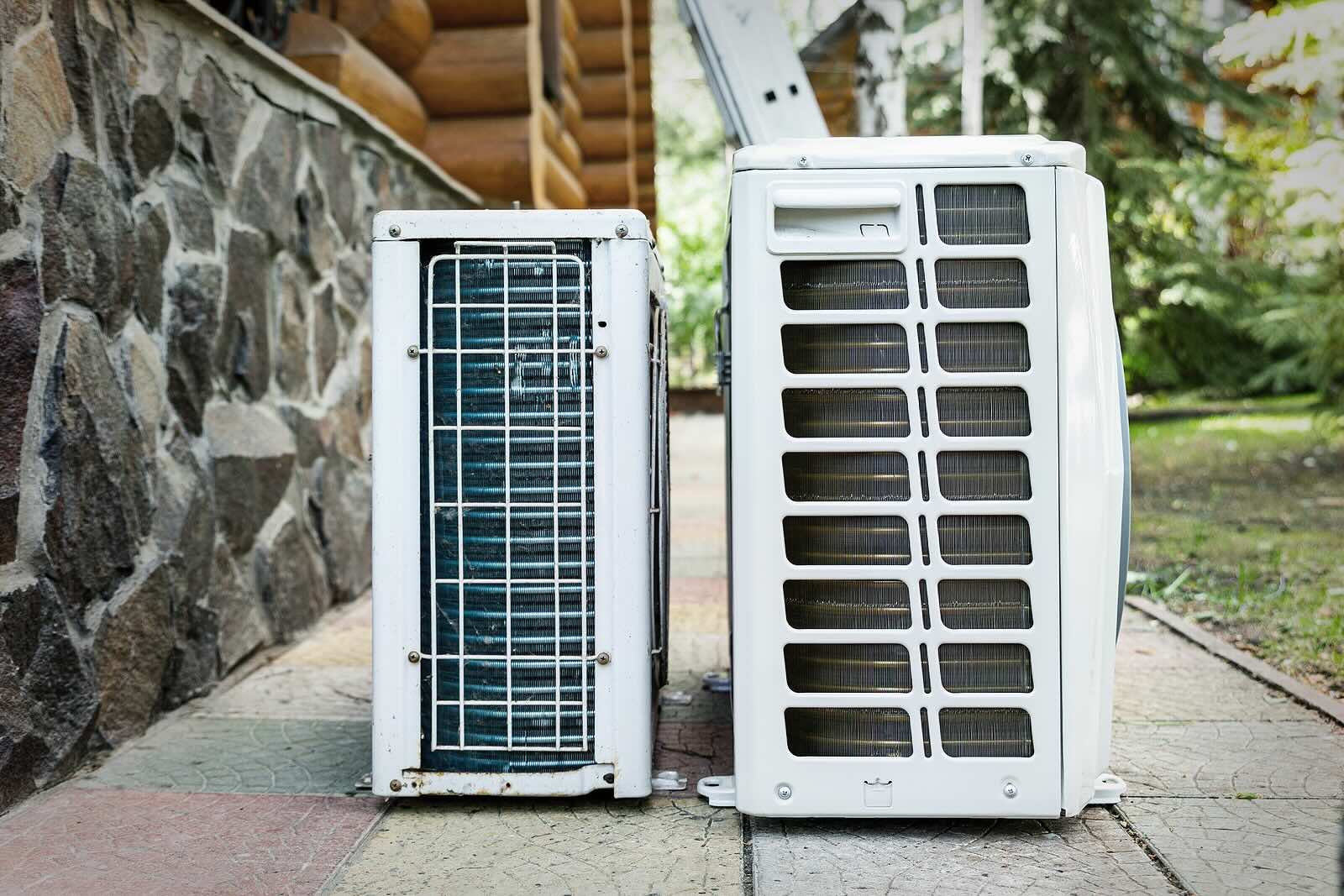

Home Maintenance
How Old Is My Air Conditioner By Serial Number
Modified: March 7, 2024
Find out the age of your air conditioner based on its serial number. A useful guide for home maintenance.
(Many of the links in this article redirect to a specific reviewed product. Your purchase of these products through affiliate links helps to generate commission for Storables.com, at no extra cost. Learn more)
Introduction
Welcome to the world of home maintenance! Whether you’re a DIY enthusiast or just looking to keep your home in tip-top shape, understanding the age of your air conditioner is crucial. Air conditioners play a vital role in keeping our homes comfortable, but they aren’t built to last forever. In fact, the average lifespan of an air conditioner is between 10 to 15 years. Knowing the age of your air conditioner can help you determine when it’s time for repairs or replacement.
One way to determine the age of your air conditioner is by looking at its serial number. Air conditioner manufacturers use serial numbers to indicate important information, including the manufacturing date. By decoding the serial number, you can unlock the secrets of your air conditioner’s age.
In this article, we will guide you through the process of decoding the serial number and identifying the manufacturing date of your air conditioner. We’ll also explore the various factors that can affect the lifespan of an air conditioner, so you can make informed decisions about maintenance and replacements.
So, grab your magnifying glass and get ready to become a detective of sorts as we delve into the world of deciphering serial numbers and answering the age-old question, “How old is my air conditioner?”
Key Takeaways:
- Decoding the serial number of your air conditioner can reveal its manufacturing date, helping you determine its age and plan for maintenance or replacement.
- Factors like installation quality, maintenance, usage patterns, and environmental conditions can impact the lifespan of your air conditioner, so proper care and attention are essential for optimal performance.
Understanding Serial Numbers
Before we dive into decoding the serial number of your air conditioner, let’s understand what a serial number is and why it is important. A serial number is a unique combination of letters and numbers assigned by the manufacturer to each unit they produce. It serves as a form of identification for the air conditioner and contains valuable information about its production.
The format of the serial number may vary depending on the manufacturer, but some common components are frequently found across different brands. These components can include the manufacturing plant code, the year of production, and the month of production.
Decoding the serial number of your air conditioner is like unlocking a secret code. By understanding the different components and their meanings, you’ll be able to determine the manufacturing date and possibly even additional information about your unit.
Keep in mind that while serial numbers generally follow a pattern, there might be variations or exceptions. It’s always best to consult the manufacturer’s documentation or website for specific details about your air conditioner’s serial number format.
Now that we have a basic understanding of serial numbers, let’s move on to how we can decipher them to find out the manufacturing date of your air conditioner.
Decoding the Serial Number
Decoding the serial number of your air conditioner can be a bit like solving a puzzle. Each digit or group of characters in the serial number represents something specific about the unit. By breaking down the serial number into its individual components, you can determine the manufacturing date of your air conditioner.
Let’s take a hypothetical example of a serial number: AC1234B56789. In this example, we’ll break down the serial number into its component parts to understand what each part represents.
The first few characters, “AC,” typically represent the manufacturer’s code. This code will vary depending on the manufacturer. It is important to note that not all manufacturers include a plant or manufacturer’s code in their serial numbers. However, if it is present, it can provide additional information about the origins of your air conditioner.
The next set of characters, “1234,” represents the year and month of manufacturing. The first two digits usually indicate the year, while the last two digits represent the month. In our example, “12” represents the year 2012, and “34” represents the month of August.
Finally, the remaining characters, “B56789,” are often unique to each unit and serve as identifiers for the specific model and production run.
Remember that this is just one example of a serial number breakdown, and the format can vary across manufacturers. It is always important to consult the manufacturer’s documentation or website to understand the specific breakdown of your air conditioner’s serial number.
Now that we have an idea of how to dissect the serial number, let’s move on to the next step of identifying the manufacturing date based on the serial number components.
Identifying the Manufacturing Date
Once you have decoded the serial number of your air conditioner, you can identify the manufacturing date. By understanding the components that represent the year and month of production, you can easily determine when your air conditioner was manufactured.
Let’s continue with our previous example of a hypothetical serial number: AC1234B56789. In this example, we determined that “12” represents the year 2012, and “34” represents the month of August.
Using this information, we can conclude that the air conditioner was manufactured in August 2012. Knowing the manufacturing date is essential because it gives you an idea of how old your air conditioner is and can help you plan for maintenance or replacement.
It’s important to note that some manufacturers may use different representations for the month component of the serial number. For example, instead of using two digits to represent the month, they may use a letter code or a different numbering system. Be sure to consult the manufacturer’s documentation or website to understand their specific serial number format.
Now that you have determined the manufacturing date of your air conditioner, you might be wondering how this information helps you in assessing its age and lifespan. Let’s explore that in the next section.
You can determine the age of your air conditioner by locating the serial number on the unit. The first four digits usually represent the week and year of manufacture. For example, a serial number starting with 0415 indicates the unit was made in the 4th week of 2015.
Determining the Age of the Air Conditioner
Now that you have identified the manufacturing date of your air conditioner, you can determine its age. Age is an important factor to consider when assessing the condition and potential lifespan of your air conditioner.
To determine the age of your air conditioner, subtract the manufacturing year from the current year. For example, if your air conditioner was manufactured in 2012 and the current year is 2021, the age of the unit would be 9 years.
It’s important to keep in mind that while the age of the air conditioner gives you an idea of its lifespan, other factors can significantly influence how long it will continue to operate efficiently. Factors such as maintenance, usage, environmental conditions, and the quality of the unit itself can impact its lifespan.
An older air conditioner may still function adequately if it has been well-maintained and not subjected to excessive wear and tear. On the other hand, a relatively new air conditioner that has been neglected or subjected to harsh conditions may not be as reliable or efficient.
Regular maintenance and servicing of your air conditioner can help extend its lifespan and ensure optimal performance. Consider scheduling annual inspections, cleaning or replacing air filters regularly, and addressing any issues or repairs promptly.
If your air conditioner is approaching or has surpassed its average lifespan of 10 to 15 years, it may be time to consider a replacement. Newer models are often more energy-efficient and environmentally friendly, which can result in cost savings on your energy bills.
Remember, determining the age of your air conditioner is just one piece of the puzzle in assessing its overall condition and lifespan. Regular maintenance, usage patterns, and environmental conditions are all important factors to consider in ensuring your air conditioner operates efficiently and effectively.
Now that you have a clearer understanding of determining the age of your air conditioner and its implications, let’s explore some of the factors that can affect the lifespan of an air conditioner.
Read more: Where Is The Serial Number On Ryobi Tools
Factors Affecting the Lifespan of an Air Conditioner
The lifespan of an air conditioner can vary based on several factors. While the average lifespan of an air conditioner is between 10 to 15 years, certain factors can impact its longevity. By understanding these factors, you can take steps to ensure the prolonged life and optimal performance of your air conditioner.
1. Quality of Installation: Proper installation is crucial for the longevity of an air conditioner. Poor installation can lead to system inefficiencies, increased wear and tear, and potential breakdowns. It’s essential to hire a qualified professional for the installation process.
2. Maintenance and Regular Servicing: Regular maintenance and servicing play a vital role in extending the lifespan of an air conditioner. Cleaning or replacing air filters, inspecting and cleaning coils, and checking refrigerant levels are all important tasks that should be performed regularly to ensure optimal performance.
3. Usage Patterns: The frequency and duration of use can impact the lifespan of an air conditioner. Units that are used more frequently or subjected to extreme temperatures may experience more strain and wear, potentially shortening their lifespan. Adjusting temperature settings and using energy-saving features when possible can help alleviate unnecessary strain on the system.
4. Environmental Conditions: The climate and environmental conditions in which an air conditioner operates can affect its lifespan. Hot and humid climates can put more stress on the system, causing it to work harder and potentially leading to faster wear and tear. It’s important to consider the specific needs and requirements of your climate when choosing an air conditioner.
5. Maintenance of Surrounding Area: The area surrounding the air conditioner should be clear of debris, vegetation, and other obstructions. Proper airflow is essential for efficient operation. Regularly clean and clear the area around the unit to ensure proper ventilation and avoid restrictions on airflow.
6. Quality of the Unit: The quality and brand of the air conditioner can also impact its lifespan. Investing in a reliable and reputable brand known for manufacturing high-quality units can result in a longer lifespan and better performance.
By considering these factors and taking proper care of your air conditioner, you can significantly increase its lifespan and avoid premature breakdowns. Regular maintenance, professional servicing, and a mindful approach to usage can all contribute to maximizing the lifespan of your air conditioner.
Now that we’ve explored the various factors that can affect the lifespan of an air conditioner, let’s wrap up our discussion.
Conclusion
Understanding the age of your air conditioner is crucial for proper maintenance and planning for its future. By decoding the serial number and identifying the manufacturing date, you can determine how old your air conditioner is and make informed decisions regarding repairs or replacements.
Decoding the serial number involves breaking it down and understanding the components that represent the manufacturing year and month. By doing so, you can determine the age of your air conditioner and assess its overall condition.
Factors such as the quality of installation, regular maintenance, usage patterns, environmental conditions, and the quality of the unit itself can all impact the lifespan of an air conditioner. By taking steps to ensure proper installation, conducting regular maintenance and servicing, being mindful of usage, and considering the environmental conditions, you can extend the lifespan of your air conditioner and optimize its performance.
Keep in mind that while the average lifespan of an air conditioner is between 10 to 15 years, proper maintenance and care can significantly impact its longevity. Regularly schedule maintenance and address repairs promptly to avoid unnecessary strain on the system.
If your air conditioner is approaching or has surpassed its average lifespan, it may be time to consider a replacement. Newer models are often more energy-efficient and environmentally friendly, which can lead to cost savings in the long run.
Remember, decoding the serial number and determining the manufacturing date of your air conditioner is just one aspect of proper home maintenance. Regular servicing, maintenance, and understanding the various factors that affect its lifespan are all key components in ensuring the reliable operation of your air conditioning system.
So, the next time you find yourself wondering, “How old is my air conditioner?”, grab your detective hat and decipher the serial number to unlock the secrets hidden within. Your air conditioner will thank you with years of cool and comfortable service.
Frequently Asked Questions about How Old Is My Air Conditioner By Serial Number
Was this page helpful?
At Storables.com, we guarantee accurate and reliable information. Our content, validated by Expert Board Contributors, is crafted following stringent Editorial Policies. We're committed to providing you with well-researched, expert-backed insights for all your informational needs.
